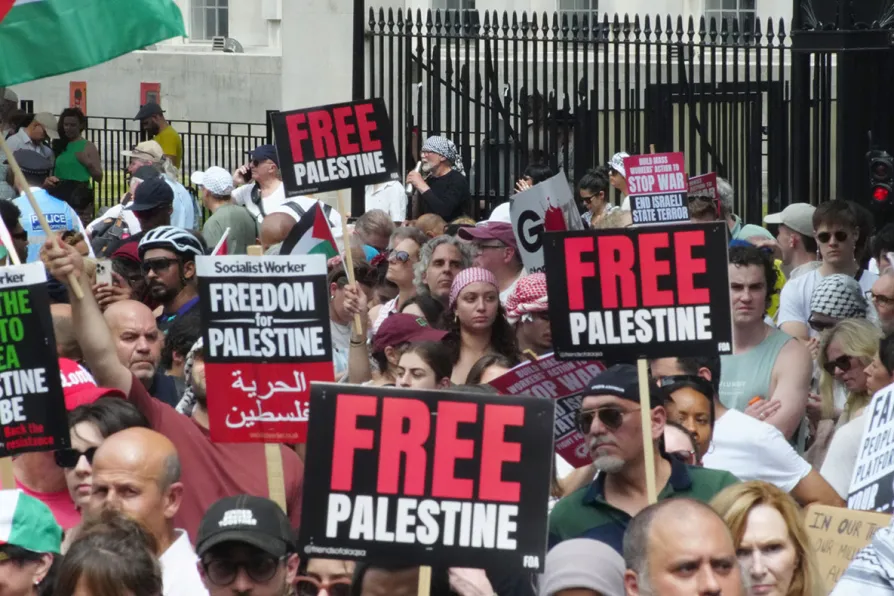
 People take part in a march organised by the Palestine Solidarity Campaign, from Russell Square to Whitehall in central London, June 21, 2025
People take part in a march organised by the Palestine Solidarity Campaign, from Russell Square to Whitehall in central London, June 21, 2025
MOST Britons do not feel comfortable talking about Israel and Palestine on social media, according to polling, which also indicated some people would consider ending friendships over the issue.
Think tank More in Common UK said its research shows that while most people do not take a side, those with strong views have become more entrenched in the two years since the October 7 Hamas attack and the assault on Gaza that followed.
In a survey of around 2,000 adults, 14 per cent said they sympathised more with the Israeli side, down from 16 per cent in November 2023.
Those who said they felt more sympathy with the Palestinian side rose to more than a quarter, up from 18 per cent two years ago.
Researchers said many of those with strong views have become “more negative about those with opposing views” in recent years.
Forty-three per cent of those who sympathise with Palestine said they would consider ending a friendship with someone who posted support for Israel on social media, while 46 per cent of those who sympathise with Israel said they would consider doing the same over a pro-Palestine post.
The pollsters said most Britons do not view the conflict through the lens of “sides,” with many saying the situation is complex.
About three in 10 feel uncomfortable discussing it with friends, rising to 76 per cent online.
The report also noted that a “lingering perception on both sides that the BBC and other mainstream outlets are biased against them has prompted supporters of both Israel and Palestine to seek out alternative sources that they feel better reflect the reality of the conflict.”
Researchers said the findings also suggested the public’s “patience for disruptive protest is wearing thin,” with 67 per cent believing some protests are so disruptive they should not be allowed.

Israel and the US talk as if they’ve won a victory, but the reality is that world opinion has turned decisively against the Israeli regime, says RAMZY BAROUD

Gaza’s collective sumud has proven more powerful than one of the world’s best-equipped militaries, but the change in international attitudes isn’t happening fast enough to save a starving population from Western-backed genocide, argues RAMZY BAROUD












